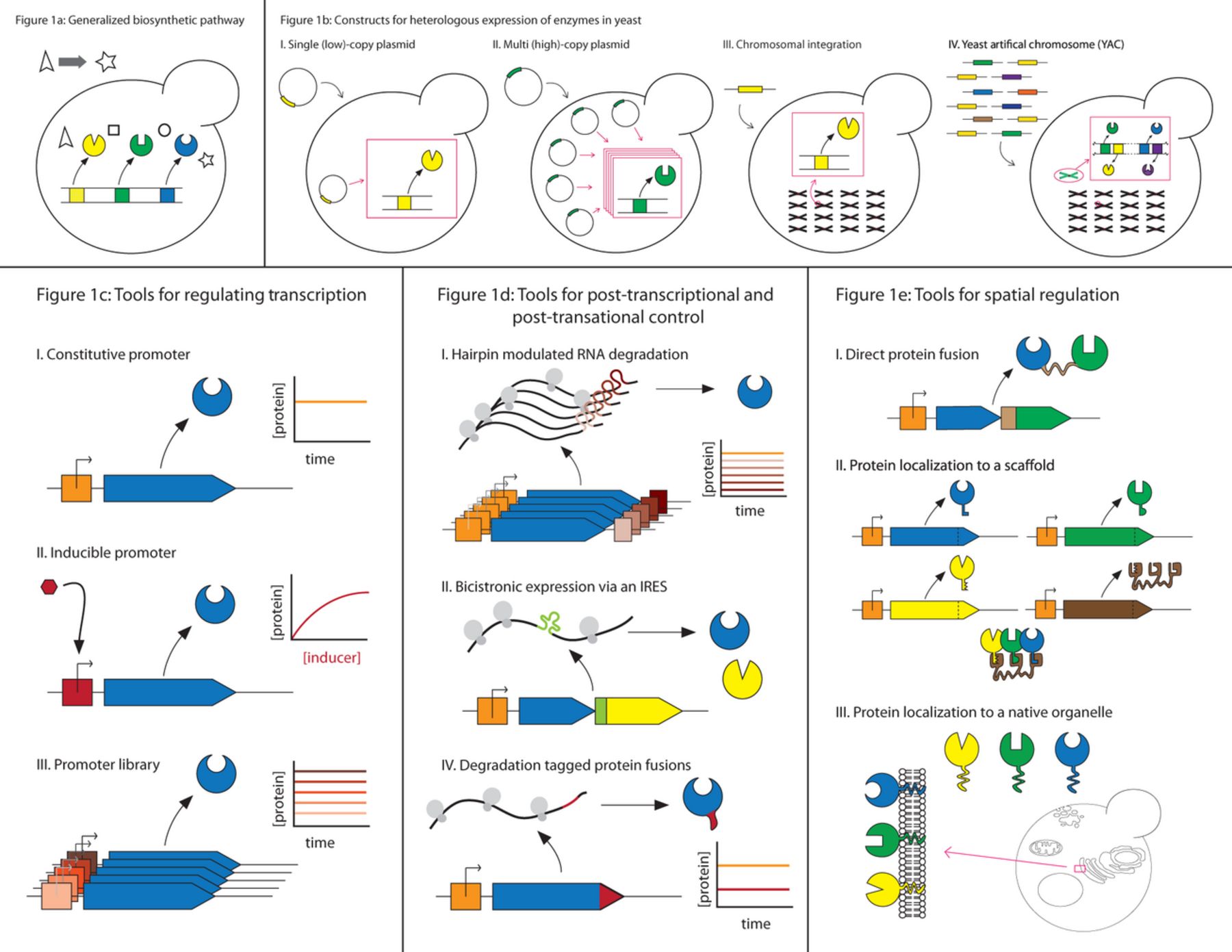With the rapid development of biotechnology, it has overlapped with many fields, from energy to medicine, manufacturing to materials. By utilizing microorganisms with useful traits, which is call cell factory, compounds with outstanding property can be produced. These compounds produced from cell factory have potential to replace those produced in traditional chemical synthesis way with less cost and more environmental.
In view of increasing population and exhausted natural resource, sustainability has been emphasized in production of supplement, including renewable product, utilization of waste and so on.
With metabolic engineering, which is optimizing genetic with biotechnology like gene editing to increase cell's property of producing certain substance. Microbes like cyanobacteria, yeast and other bacteria have been modified with traits to broaden their list of production and improve their yield.
As model organism, yeast has been studied thoroughly, which accelerates process of utilizing yeast as platform of industrial producing.
 Tools for Controlling Enzyme Expression in Yeast (Michael, et al. 2012)
Tools for Controlling Enzyme Expression in Yeast (Michael, et al. 2012)
By introducing phenolic biosynthesis pathway into yeast, they can participate in process of producing phenolics. Many gene involved in phenolic biosynthesis pathway has been transformed into yeast cells.
Isoprenoids are important secondary metabolites, which are useful in treatment of disease, as well as food industry. By introducing gene involved in isoprenoids synthesis pathways, yeast strains can be able to participate producing of isoprenoids.
Alkaloids can be isolated from many organisms, those from plants are especially important duo to its pharmacological activities. By introducing gene involved in alkaloids synthesis pathway, yeast can be abele to produce alkaloids or intermediate compounds.
Polyketides hold many biological activities, particularly as antibiotics. Pathway of synthesizing polyketides contains enzymes called polyketide synthases (PKS). Yeast has been proven to be able to express genes coding PKS.
As a photosynthetic microorganism, cyanobacteria can fix carbon dioxide, a greenhouse gas, into valuable metabolites utilizing solar energy. Compared with ither plants and eukaryotic algae, cyanobacteria are more genetically tractable and can archive higher expression of exogenous genes.
Secondary metabolites produced from cyanobacteria can fulfill diverse roles, including providing defense from harmful environment, facilitating processes of signal transmission, as antioxidant, as antibiotics and many other bioactive roles. Some of the metabolites of cyanobacteria have been proven to have pharmaceutical activity.
With gene editing technology, metabolic pathways of cyanobacteria can be manipulated for producing pharmaceutical active metabolites for medical properties, and reducing toxic of some metabolites.
Plants produce abundant metabolites with large diversity in structure and function. These compounds play very important role in plant life cycle, as well as process of products valuable for human. Plants can be genetically modified for manipulate the process of producing secondary metabolism, including the metabolic pathways of alkaloid, terpenoid, flavonoids, phenolic, saponin, etc.
With advanced and mature gene editing platform RecoNase™, Lifeasible offers services including gene knock-in and gene knock-out in cyanobacteria, chloroplast and yeast. Our experienced scientists have established efficient and high-precision gene editing toolkit, in which our customers can get satisfying results on time. Please feel free to contact us, get started with our professional services.
Reference